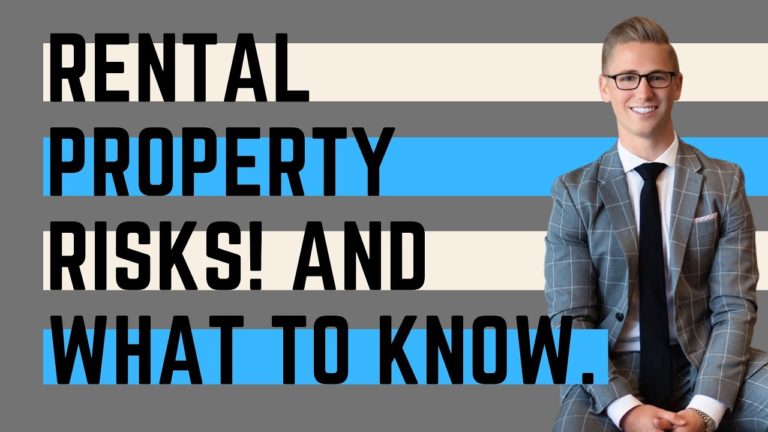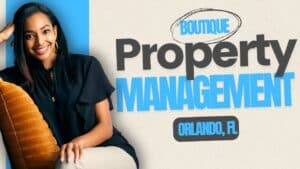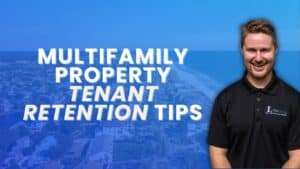Every rental property investment comes with risk, and owning a rental property is no different. Your risk tolerance will always come into play. Age, strategy, economic/financial position, personal risk tolerance, and your desired outcome for your investment will need to be considered. Your rental property risks need to be broken down into the four risk mitigation strategies to understand how you can reduce your potential risk and maximize your rental property returns.
As a professional property management company in Orlando, Florida, we have seen that each real estate investor has their own opinion regarding rental property risks.
When investing and managing a rental property, we can mitigate your risk by doing one of four things. We can avoid risk, reduce & control risk, transfer risk, or simply accept the inherent risk of owning a rental property and being a landlord.

Avoiding Rental Property Risk.
Attempts to minimize vulnerabilities that can or may pose a threat. Meaning, avoiding activities and decisions that may carry risk. An example of risk avoidance with regards to your rental property is to consider the following. You can avoid certain services or activities of risky functions from one’s offerings or services provided. Let’s say you are setting up a lawn service provider or groundskeeping for your rental property. You have a decision; you can go the cheap route with a friend down the road or hire a licensed grounds-keeper to maintain the property’s grounds. Your neighbor may be able to complete this job for a fraction of the price, but what are the inherent risks you leave yourself open to by using an unlicensed, uninsured neighbor? It’s best to avoid the practice altogether.
If you own a multifamily property and considering amenity offerings and upgrades. You can avoid inherent risky features from your property like fitness centers or pools because of their increased intrinsic risks.
Reducing or Controlling Your Rental Property Risk.
Attempts to mitigate potential losses. A great example is a diversification. If some economic distress hits a particular sector hard. You will feel less of an impact from that tragedy if you are diversified. You can diversify your real estate portfolio by investing in different areas and asset types with holdings in categories of single-family, multifamily, or commercial real estate.

When controlling your rental property risks, you’ll want to weigh the pros and cons of different risks that can lead to a decision to accept the potential dangers and attendant liabilities, when the likelihood of a specific outcome loss is low. This intentional or active retention will be easy and natural. It is also possible to retain risk unintentionally or passively through ignorance of a particular risk. One can take extra precautions to minimize the chance or likelihood that something will occur by performing certain aspects and duties of operating the property. For example, if you have an extensive portfolio with a vast operating activity of lawn and landscaping needs, requiring continuous attention. It may be more cost-effective to employ qualified maintenance personnel as groundskeepers than to contract out with a landscaping service, especially if this person or staff can perform other related maintenance tasks at the property.
The employment of an Orlando property management company to operate the rental property effectively reduces your risk and controls potential losses you likely would have missed. Activities such as regular inspections of the rental properties and reviews of financial matters are extensions of this principle. Your management provider is an expert in this field. They ensure that potential problems are identified early on and dealt with before they become significant concerns that help reduce/control your risk. A property manager can limit (i.e., control) these particular types of risk for your property.
Transfer Your Rental Property Risk.
Insurance is the most common element of managing and transferring risk to another third party. We all know not insuring your rental property or not having adequate coverage on your rental property is extremely risky. Holding a proper policy, you transfer your risk by being protected. In return for the premium you pay, as the insured party. The insurer assumes the burden of financial loss resulting from injuries to people or damage to property.
As a rental property owner, you need to transfer the risk of liability to a third party. A non-negotiable is to ensure you have adequate public liability insurance. You can purchase an insurance policy, by which a specified risk of loss is passed from the policyholder to the insurer.

If you are a new landlord planning to rent out your primary residence, you may think you are adequately covered under your current homeowner’s insurance policy. However, you need to consult your insurance provider. Don’t assume you are covered because you’re likely not. Zack.com reports that “…landlord policies cost approximately 25 percent more than homeowners insurance contracts because landlords are exposed to more risks than most homeowners are.” Again, check with your insurance provider to ensure you are covered.
You can transfer additional risk by strongly encouraging your tenant to acquire renter’s insurance for the duration of their tenancy in your rental property. Your tenants’ renter’s insurance will help avoid any disputes if the tenants’ personal belongings are damaged or destroyed in the event something should happen. Some of the most common renter’s insurance policies you can direct your tenant to will be provided from Allstate, Nationwide, Liberty Mutual, Progressive, Lemonade, and Jetty, to name a few. The average plan is costing tenants about $15 a month.
Accept Your Rental Property Risk.
Carefully weigh the pros and cons of potential risk and accept the uncertainty with regard to your own personal risk tolerance. Every investment comes with risk, and we take on/accept those risks to reap the rewards. For rental property owners, the potential lessor risk of owning a rental property is not great enough to warrant spending money or avoid it to pursue another investment.
So…what is your risk management and mitigation plan for your rental property or real estate investment? First, understand the way you and your team can mitigate your rental property risk. Owning a piece of real estate is always a fantastic and safe investment. Get excellent management in position for you, and your rental property will produce a solid return.
Hire Orlando Property Management Companies
Having a dedicated and educated Orlando property manager will take all the risk out of owning a rental property in Orlando & Central Florida. Rental property management companies undergo an extensive amount of educational requirements that reduce or eliminate risks that go along with owning an investment property.
If you have any questions, comments, or would like professional Orlando property management for your rental property, please feel free to reach out to The Listing Real Estate Management, your full-service Orlando property management company. Cheers!






